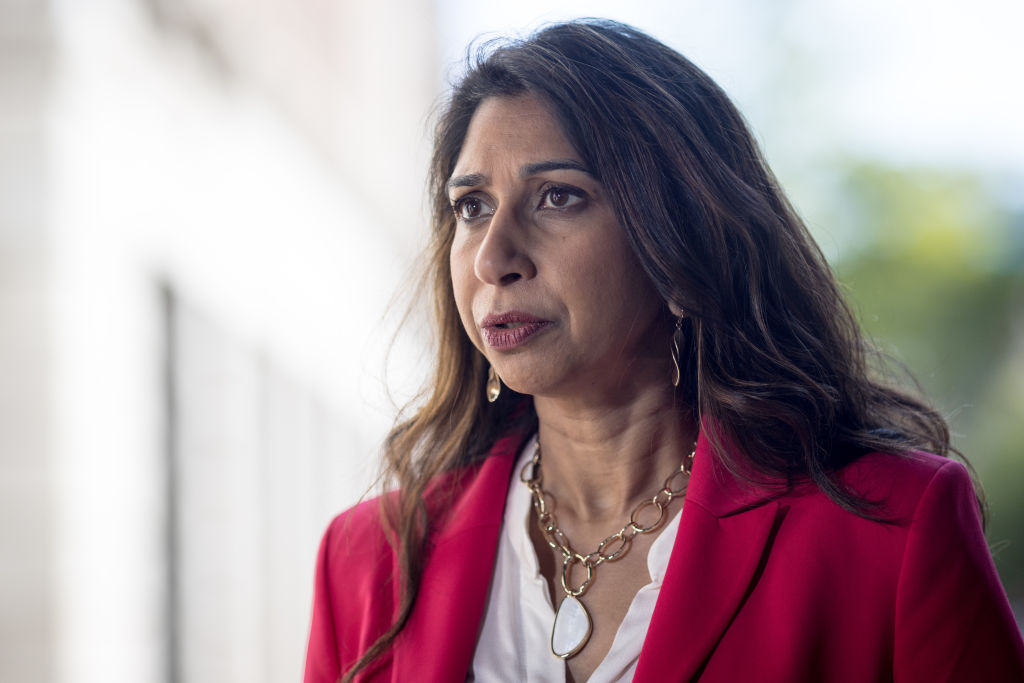Baroness Casey’s landmark review into Britain’s grooming gangs contained some truly horrific revelations. The damning audit found that disproportionate numbers of Asian men were responsible for child sexual exploitation gangs. Shockingly, it revealed that the authorities failed to crack down on these men for fear of being racist. It has prompted outrage from those who had been vilified for suggesting particular groups of people were more likely to be perpetrators than others – and Mr S is curious about whether the organisations who were quick to cry racism will now retract their criticism.
The NSPCC signed a joint letter in which they huffed and puffed about comments made by Suella Braverman on grooming gangs
It seems the National Society for the Prevention of Cruelty to Children (NSPCC) is not quite there yet. In May 2023, the organisation signed a joint letter – alongside 64 other groups – in which they huffed and puffed about comments made by Suella Braverman and Rishi Sunak on grooming gangs, rebutting ex-Home Secretary Braverman’s claim that perpetrators of group-based offending were ‘almost all British-Pakistani’. (IPSO deemed this to be misleading, but did not uphold the complaint after it accepted the Mail on Sunday’s clarification, published some days later. The press regulator added: ‘The Committee was not asked to, and did not, make a finding on the general issue of whether these offences are disproportionately committed by British-Pakistani men.’) The letter blasted the ‘misinformation, racism and division’ spread by the politicians and claimed that ‘partial, inaccurate or divisive claims’ about child sexual abuse undermined crime prevention. The organisations fumed:
We are extremely concerned that recent public communications about child sexual abuse from Government Ministers have been based on misleading information and risk creating division, rather than keeping children safe.
But recent events have altered the accepted facts somewhat. The complex picture by the Casey report suggests that, where ethnicity data was logged (in around a third of the cases of group-based child sexual exploitation) there was an overrepresentation of Asian and Pakistani men. Take Manchester, for example: according to the report, over a three-year period 52 per cent of suspects involved in multi-victim, multi-offender child sexual exploitation cases were Asian compared to 38 per cent who were white. And, as Mr S has written before, Pakistani men are up to five times as likely to be responsible for child sex grooming offences than the general population, according to figures from the Hydrant Programme, which investigates child sex abuse. Around one in 73 Muslim men over 16 have been prosecuted for ‘group-localised child sexual exploitation’ in Rotherham, research by academics from the universities of Reading and Chichester has revealed.
None of this is enough to make the NSPCC row back, however. Instead the organisation pointed Mr S towards its statement made on Monday in response to Baroness Casey’s review, which said:
Any child can be a victim of child sexual exploitation and adults who commit these horrific crimes come from different backgrounds and communities. Perpetrators target the most vulnerable and accessible children in society and if we narrow our focus, we risk missing those hiding in plain sight, whatever their ethnicity.
When Steerpike pressed the society, it said it had no plans to put forward a retraction or apology. How very interesting. Perhaps some of the letter’s other signatories may choose to distance themselves from that rather dated memo instead. Talk about aging badly, eh?







Comments